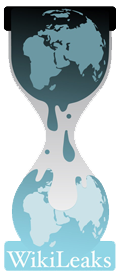What WikiLeaks Means For The Future Of Journalism

And yet, it is entirely different. It's 2010. And it's going viral.
Within minutes of the first tweet revealing Sunday's release of nearly 92,000 military reports on WikiLeaks.org, the center of gravity of the media universe appeared to shift.
Facebook, Twitter, the blogosphere and the mainstream media were all aflutter about the "Afghan War Diaries." But who broke the story?
The Web. Or better said, the New York Times, thanks to the Web.
WikiLeaks, a non-profit organization that has gained recent prominence with its mission to "reveal 'unethical behavior' by governments and corporations," gave the formerly secret documents with major revelations about the war in Afghanistan to the New York Times, The Guardian and Der Spiegel, weeks ago with an agreement that nothing would be published until July 25.
The reports, which chronicle a six-year window of time on the ground in Afghanistan "that is in many respects more grim than the official portrayal," are described by the site as "the most significant archive about the reality of war to have ever been released during the course of a war."
The New York Times described them as "a daily diary of an American-led force often starved for resources and attention as it struggled against an insurgency that grew larger, better coordinated and more deadly each year."
"The documents — some 92,000 reports spanning parts of two administrations from January 2004 through December 2009 — illustrate in mosaic detail why, after the United States has spent almost $300 billion on the war in Afghanistan, the Taliban are stronger than at any time since 2001."
The scoop by WikiLeaks, which the White House has since called "not an objective news outlet but rather an organization that opposes US policy in Afghanistan," (WikiLeaks' founder Julian Assange denies that the site has a leaning on the war but notes, "We do have a view that it should be prosecuted as humanely as possible,") reveals the significance of changing times in the media world.
We no longer live in a society where court injunctions tie up printing presses. Instead, anyone, anywhere can have the prominence of an outlet like the New York Times and reveal information that shakes the world.
In the case of WikiLeaks, those anyones and anywheres is a small staff, just a handful, backed up by a "network run by volunteers in more than a dozen countries."
WikiLeaks allowed the three outlets exclusive access so they could compile, analyze and further report the hard data the site received from its source/s. WikiLeaks is still holding on to 15,000 documents "until its technicians could redact names of individuals in the reports whose safety could be jeopardized."
In an editor’s note, the New York Times describes in detail the process of vetting the documents and deciding what to publish.
The decision by all three news outlets to report on the documents gives WikiLeaks a gold star of sorts. The pursuit of the information provided by an organization that is clear in its ethics-policing agenda boosts WikiLeaks’ credibility and will propel it to a new level of respectability.
WikiLeaks is a new type of media organization that defies obsolete characterizations. It has established itself as an open channel for whistleblowers who now understand the power of networked communications i.e. the Web.
In this case, it is widely believed that WikiLeaks received its data from a 22-year-old U.S. Army intelligence analyst who currently sits under arrest.
In its story on the document release, the L.A. Times largely cribs from the analysis of the New York Times and notes, “The Los Angeles Times and other Tribune newspapers have not thoroughly reviewed the documents.”
This statement says it all—in an Internet-centric world, if you’re not first, you’re last.
Outlets like the L.A. Times will now all play catch up on both the Web and in print to add to the conversation and analysis on a story they just don’t have.
In his July 21 column, “On the Media,” the L.A. Times’ James Rainey decries the weakening of newspaper ranks across the country as circulation and staff sizes shrink.
He applauds the Times for a recent scoop on "outsized official salaries in the small, working-class city” of Bell in Los Angeles County and for having “the resources to unearth" the story, but he notes that “more persistent journalistic voices closer to home are needed.”
But Rainey should applaud the Web for replacing inefficient and outdated newspaper delivery systems. Websites like WikiLeaks are "persistent journalistic voices" making waves in the national conversation. They just don’t present themselves like the voices that used to be delivered every morning by a boy on a bicycle.
WikiLeaks is a prime example of the source, voice and information provider of the media’s future.
And many readers will have the full story of the Afghan War Diaries long before the arrival of their morning newspapers.
Get used to it.
To reach editor-in-chief Callie Schweitzer, click here.



